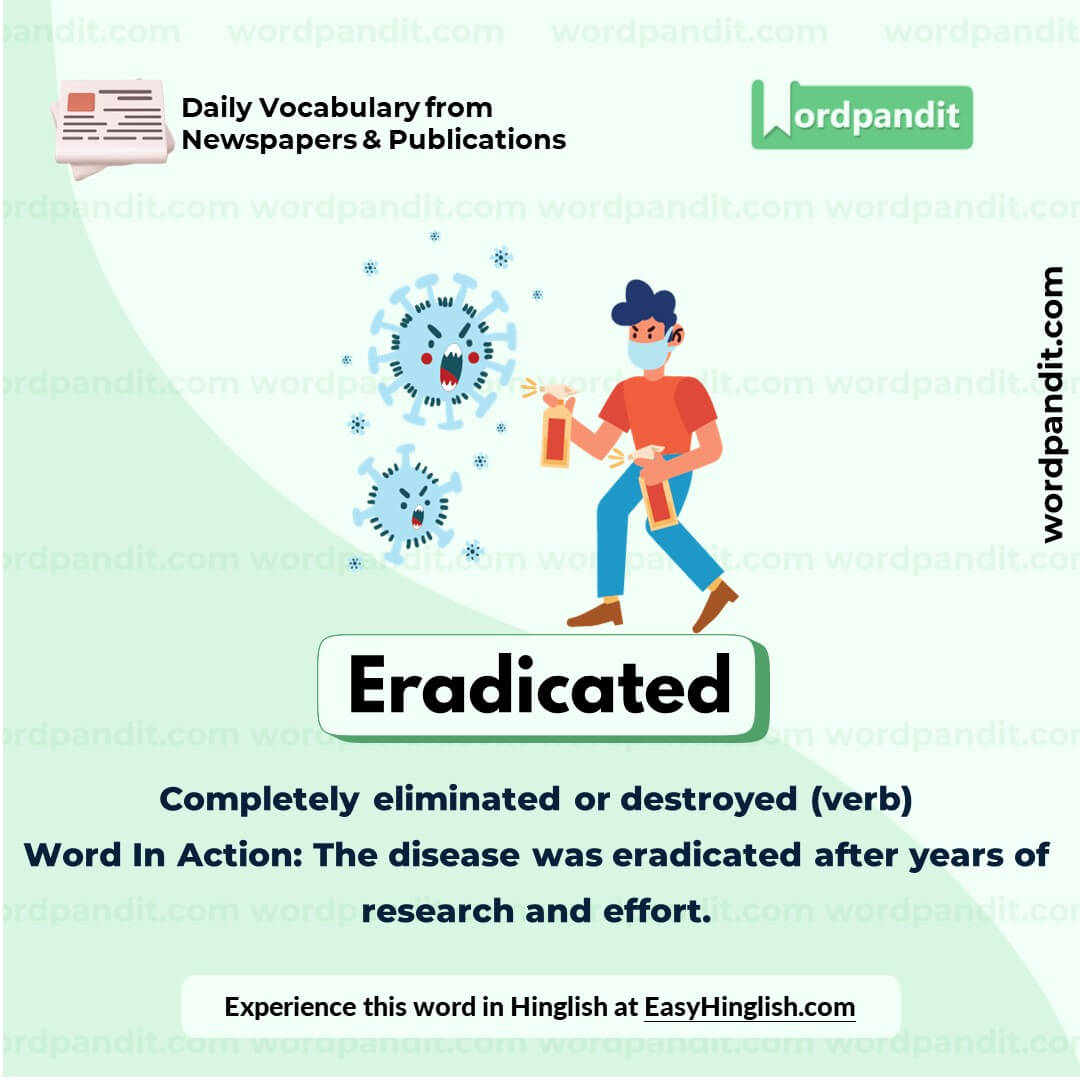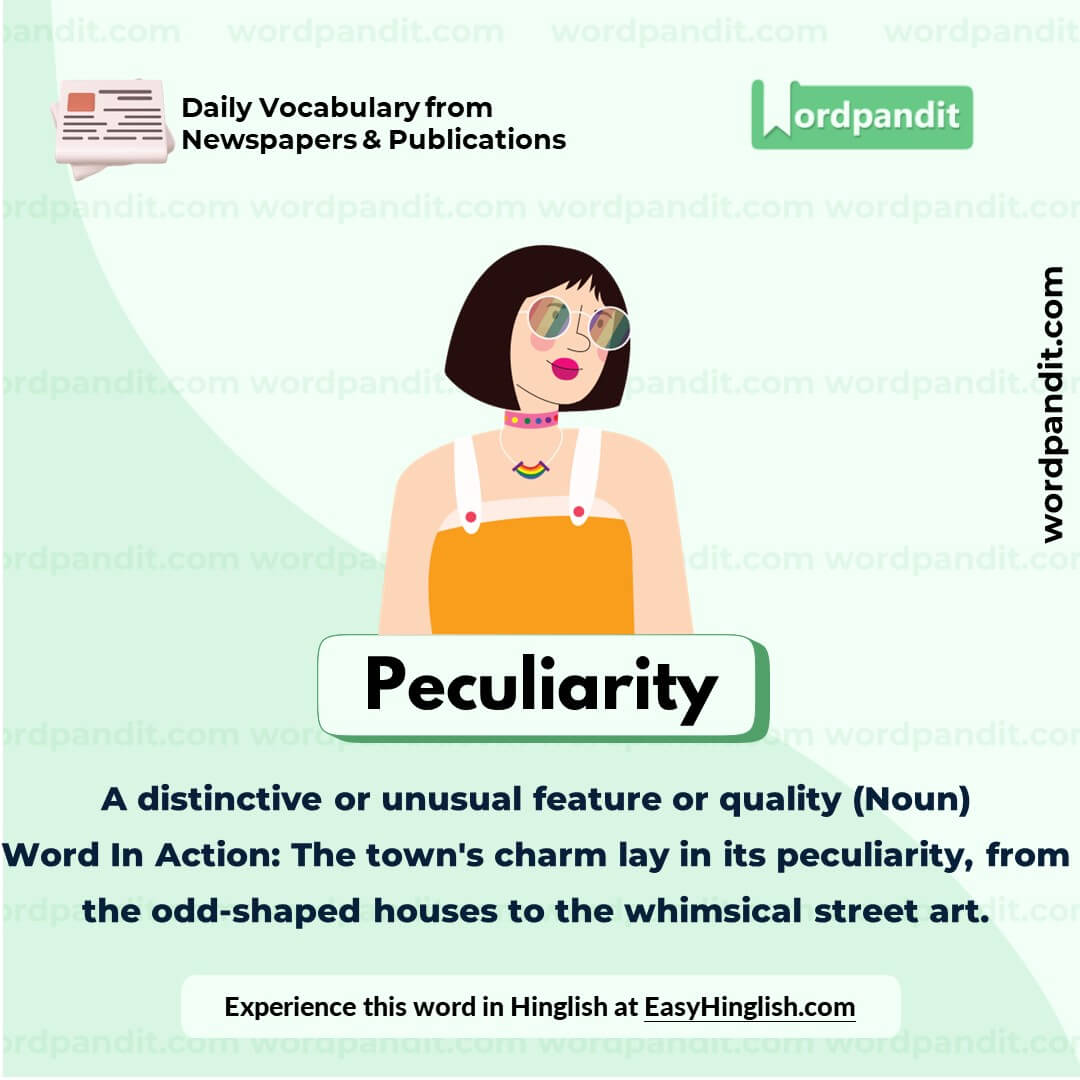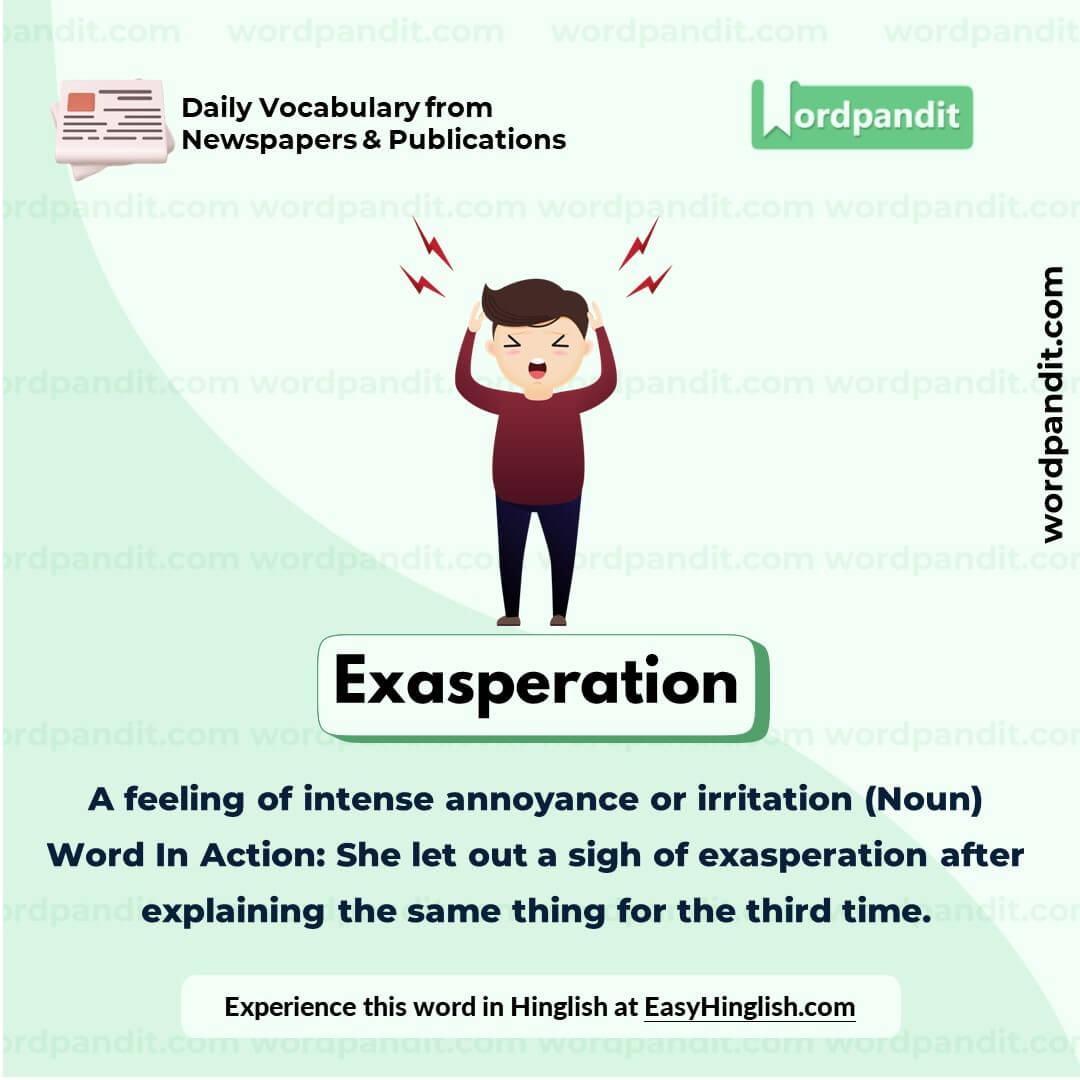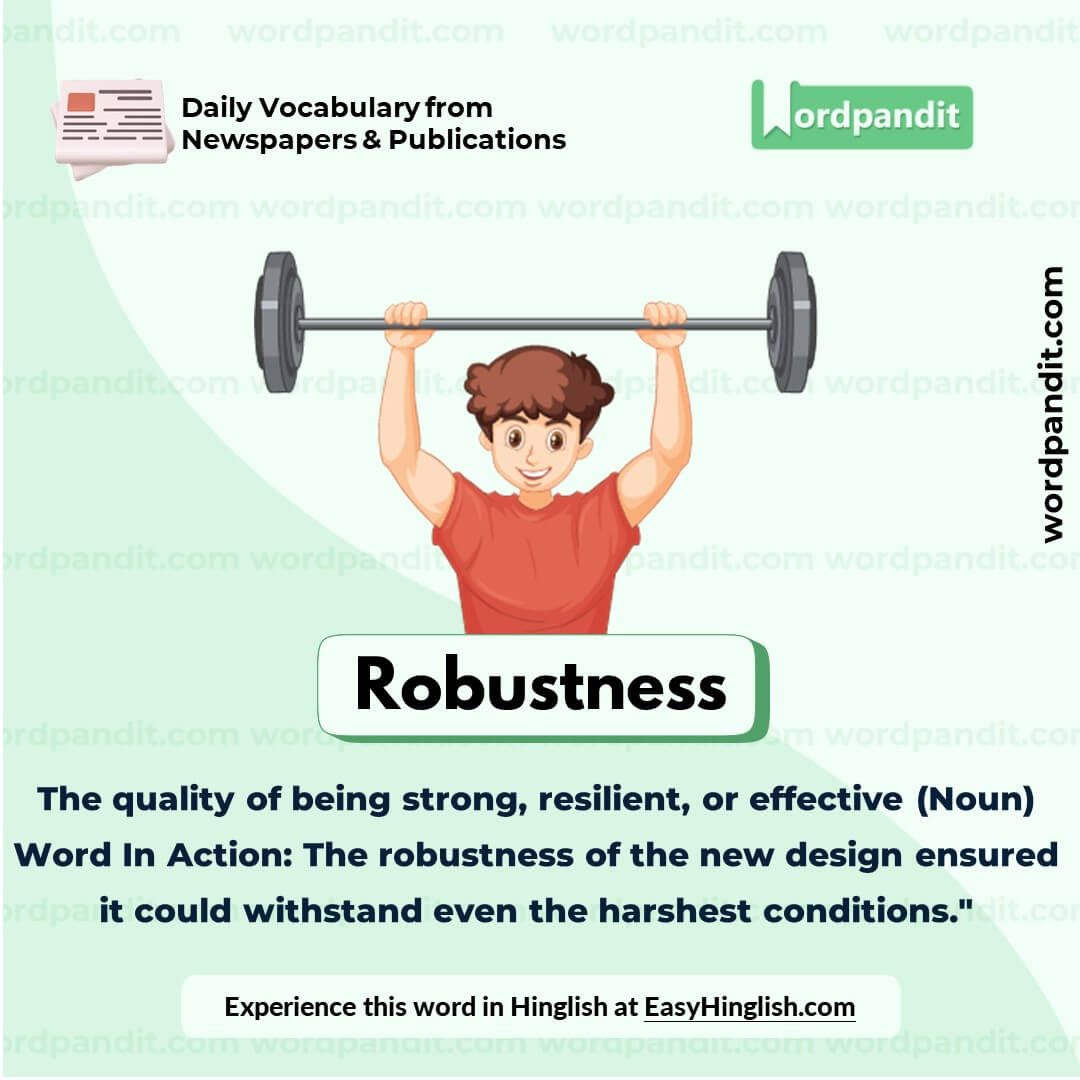Daily Vocabulary from International Newspapers and Publications
Expand Your Vocabulary with Wordpandit’s Global Vocabulary Hub
At Wordpandit, we are committed to helping you develop a truly global vocabulary by drawing from some of the most respected international publications. This section is designed to keep you ahead of the curve by introducing you to words that define global conversations and trends.
The Power of Global Sources
To help you think and communicate on a global scale, we curate vocabulary from renowned international sources, such as:
- The New York Times
- The Washington Post
- BBC
- The Guardian
- The Economist
- Scientific American
- Psychology Today
- And many more...
Stay Global, Stay Competitive
Our daily updates from international publications ensure you are consistently exposed to new words that reflect global news and developments, making sure your vocabulary is not only current but also globally relevant.
Enhance Your Global Perspective
Whether you’re preparing for international exams, aiming to excel in global business communication, or want to enhance your language skills for personal growth, Wordpandit offers the resources you need to thrive in a global context.
Effective Learning, Global Reach
Our learning methodology combines global examples, memory aids, and interactive activities, allowing you to internalize new words effectively and apply them in real-world scenarios.
Begin Your Global Vocabulary Journey Now!
Why Choose Wordpandit?
Practical Learning: Focus on words you'll actually encounter in real-world reading, enhancing your comprehension and communication skills.
Diverse Content: From current affairs to scientific breakthroughs, our varied sources expose you to vocabulary across multiple domains.
Effortless Integration: Make Wordpandit a part of your daily routine. Just a few minutes each day can significantly boost your lexicon over time.
Your Path to Vocabulary Mastery
- Visit our Daily Vocabulary section regularly
- Explore new words and their usage in context
- Practice incorporating these words into your own writing and speech
- Track your progress as your vocabulary expands
Start Your Journey Today
Embark on your vocabulary enhancement journey with Wordpandit. By consistently engaging with our daily posts, you'll build a robust vocabulary that serves you well in academic, professional, and personal contexts.
Remember, a word a day keeps linguistic limitations at bay. Make Wordpandit your daily companion in the quest for vocabulary excellence!
WORD-1: Eradicated
Context:
"So were some common diseases such as smallpox and the plague, for example, which now have been completely eradicated in high-income countries." - BBC
Explanatory Paragraph:
"Eradicated" refers to the complete elimination or destruction of something, leaving no trace behind. It is often used to describe the successful removal of diseases, pests, or problems, especially through planned and sustained efforts.
Meaning: Completely eliminated or destroyed (verb)
Pronunciation: ih-RAD-ih-kayt-ed
Difficulty Level: ⭐⭐⭐ Intermediate
Etymology: From Latin "eradicare," meaning "to root out," derived from "radix," meaning "root."
Synonyms & Antonyms:
Synonyms: Eliminate, abolish, extinguish, exterminate
Antonyms: Establish, create, maintain, preserve
Usage Examples:
- The government implemented a nationwide campaign to eradicate polio.
- Poverty cannot be eradicated overnight, but consistent efforts can make a difference.
- Farmers used advanced techniques to eradicate invasive species from their fields.
- With the new software update, most bugs have been eradicated.
Cultural Reference:
"Smallpox, once a global killer, was declared eradicated by the World Health Organization in 1980 after a successful vaccination campaign." - WHO Report
Think About It:
What challenges do nations face in trying to eradicate diseases globally, and why might some diseases reappear after being eradicated in specific regions?
Quick Activity:
List three problems or issues in society you think should be eradicated and discuss what steps would be necessary to achieve this goal.
Memory Tip:
Think of "eradicate" as "pulling out the roots" of a problem, just like uprooting weeds to completely clear a garden.
Real-World Application:
The concept of eradication is crucial in public health, where diseases like polio, malaria, and measles are targeted for complete removal through vaccination and public health campaigns.
WORD-2: Surreal
Context:
"Jamey revels in the surreality of the scene, capturing Greg and Kate as they ride their bikes and race a car down the runway, and keep the town’s lawns green amid a vast sea of red outback dirt." - Psyche
Explanatory Paragraph:
The word "surreal" describes something that feels dreamlike, bizarre, or out of touch with reality. It often refers to situations, art, or experiences that are extraordinary or strangely unfamiliar, blending reality and imagination.
Meaning: Having a dreamlike quality; strange and unreal (Adjective)
Pronunciation: suh-ree-uhl
Difficulty Level: ⭐⭐⭐ Intermediate
Etymology: Derived from French "surréalisme," meaning "beyond realism," first coined in the 1920s as an art movement.
Synonyms & Antonyms:
Synonyms: Dreamlike, bizarre, fantastical, uncanny
Antonyms: Realistic, ordinary, mundane, normal
Usage Examples:
- The surreal painting depicted a melting clock against a desert landscape.
- Standing atop the mountain at sunrise, the view felt almost surreal.
- The movie's plot was so surreal that it left the audience questioning reality.
- Meeting her childhood idol in an unexpected place was a surreal experience.
Cultural Reference:
"Surrealism, a 20th-century art movement led by figures like Salvador Dalí, aimed to express the unconscious mind by blending reality with dreamlike imagery." - Art History Archive
Think About It:
Why do surreal experiences often feel both unsettling and fascinating?
Quick Activity:
Describe a moment in your life that felt surreal, whether it was a dreamlike experience or an extraordinary real-life event.
Memory Tip:
Think of "surreal" as "super real" — so extraordinary that it feels like it goes beyond reality.
Real-World Application:
The word "surreal" is widely used in everyday speech to describe moments or events that feel extraordinary or dreamlike, such as celebrity encounters, breathtaking views, or shocking news.
WORD-3: Peculiarity
Context:
"The film captures the distinct joys, lonelinesses and peculiarities of a life lived far from other people and the broader concerns of society at large." - Psyche
Explanatory Paragraph:
The word "peculiarity" refers to a unique or unusual quality, characteristic, or habit that sets something or someone apart. It often highlights what is strange or distinctive, whether in a positive, negative, or neutral sense.
Meaning: A distinctive or unusual feature or quality (Noun)
Pronunciation: puh-kyoo-lee-ar-i-tee
Difficulty Level: ⭐⭐⭐ Intermediate
Etymology: Originates from the Latin word "peculiaris," meaning "private property" or "special," later evolving to signify something unique or unusual.
Synonyms & Antonyms:
Synonyms: Oddity, quirk, uniqueness, eccentricity
Antonyms: Normality, regularity, sameness, commonality
Usage Examples:
- The peculiarity of her laugh made everyone in the room smile.
- The town’s peculiarities, such as the colorful houses and unique festivals, attract many visitors.
- His handwriting had a peculiarity that made it instantly recognizable.
- The scientist noted the peculiarity of the plant’s growth pattern in the new environment.
Cultural Reference:
"Peculiarities of different cultures, like unique cuisines or traditional clothing, often become points of intrigue and celebration in global festivals." - UNESCO World Heritage
Think About It:
Why are peculiarities often more memorable than ordinary characteristics?
Quick Activity:
Write down three peculiarities about your hometown or community that make it unique.
Memory Tip:
Remember "peculiarity" by associating it with "peculiar" — something unusual or unique that stands out.
Real-World Application:
The term "peculiarity" is often used in sociology, art, and everyday language to discuss unique traits of individuals, cultures, or objects that make them stand out.
WORD-4: Exasperation
Context:
"In my native Serbia, the doctor would shake their head in exasperation, averting their gaze to spare me from the shame I should feel for having waited so long to come." - Psyche
Explanatory Paragraph:
"Exasperation" refers to a feeling of intense irritation or annoyance, often resulting from a situation that seems frustratingly difficult or impossible to resolve. It captures the heightened emotional response to repeated aggravation.
Meaning: A feeling of intense annoyance or irritation (Noun)
Pronunciation: ig-zas-per-ay-shun
Difficulty Level: ⭐⭐⭐ Intermediate
Etymology: Derived from the Latin word "exasperare," meaning "to irritate" or "make rough," highlighting the emotional roughness felt during irritation.
Synonyms & Antonyms:
Synonyms: Irritation, frustration, annoyance, vexation
Antonyms: Patience, calmness, satisfaction, contentment
Usage Examples:
- She sighed in exasperation after explaining the same instructions for the third time.
- The exasperation in his voice was evident as he struggled with the malfunctioning printer.
- After hours of searching, they gave up in exasperation, unable to find the lost keys.
- The teacher’s exasperation grew as the students continued to chatter during the lecture.
Cultural Reference:
"In literature, exasperation is often portrayed in characters dealing with repetitive challenges, such as Mr. Bennet’s witty exasperation in 'Pride and Prejudice' when facing his family’s antics." - Literary Analysis Journal
Think About It:
Why do people often find it harder to remain patient in situations of repetitive annoyance?
Quick Activity:
Recall a recent moment of exasperation you experienced. Write a few sentences about what caused it and how you reacted.
Memory Tip:
Think of "exasperation" as "excess irritation" — an amplified feeling of being annoyed or frustrated.
Real-World Application:
"Exasperation" is a common emotion in daily life, often seen in interactions involving misunderstandings, delays, or repetitive challenges, such as navigating bureaucracy or solving persistent technical problems.
WORD-5: Robustness
Context:
"From that collectivist culture I moved to one where not relying on my own individual robustness caused dismay." - Psyche
Explanatory Paragraph:
"Robustness" refers to the quality of being strong, healthy, or resilient, both physically and metaphorically. It can describe individuals, systems, or structures that are capable of withstanding challenges or stress without breaking down.
Meaning: The quality of being strong, resilient, or effective (Noun)
Pronunciation: roh-buhst-ness
Difficulty Level: ⭐⭐⭐ Intermediate
Etymology: Derived from the Latin word "robustus," meaning "strong" or "firm," originally associated with the strength of oak wood.
Synonyms & Antonyms:
Synonyms: Strength, durability, resilience, sturdiness
Antonyms: Weakness, fragility, frailty, delicacy
Usage Examples:
- The robustness of the new bridge was tested under extreme weather conditions.
- Her emotional robustness allowed her to overcome the challenges she faced at work.
- Investors praised the robustness of the company’s financial strategy during a volatile market.
- The robustness of the software ensured it could handle millions of users simultaneously.
Cultural Reference:
"Robustness is a key principle in engineering design, ensuring that systems remain operational even under unpredictable conditions." - Principles of Engineering
Think About It:
How do different cultures perceive and value robustness in individuals and systems?
Quick Activity:
List three examples where robustness is critical—such as in a machine, a person, or a system—and explain why.
Memory Tip:
Think of "robustness" as "robust + ness" — the state of being strong and reliable, like a sturdy oak tree.
Real-World Application:
"Robustness" is essential in fields like technology, where it signifies system reliability, as well as in personal development, emphasizing mental and physical resilience to handle life’s challenges.
















